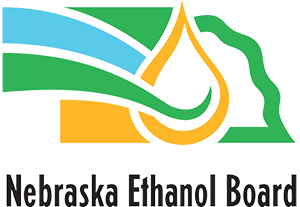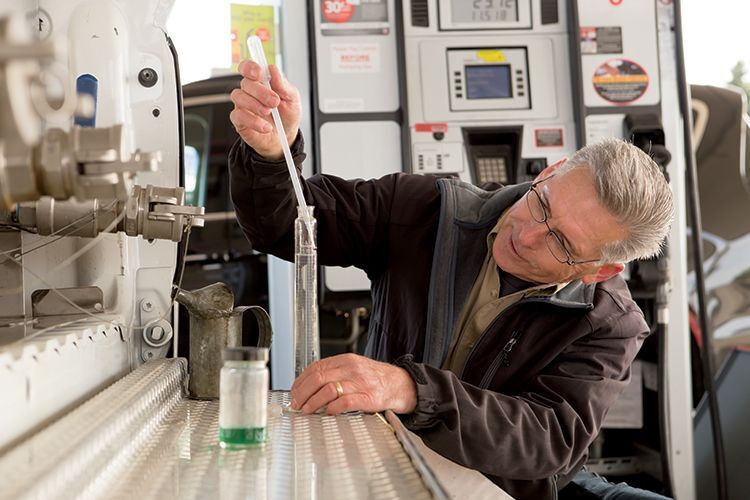NEB's Fuel Retailer Infrastructure Compatibility issue brief shows that the vast majority of the legacy infrastructure at fuel retail locations across the United States is compatible with higher blends, and the percentage of compatible fuel storage and dispensation systems will only continue to go up as new fueling locations are built and existing locations upgrade.
Compatibility Checklist
Creating a compatibility checklist before implementing higher ethanol blends can bring up important considerations related to infrastructure, regulatory compliance, safety, and customer communication early in the process. Here's a comprehensive checklist to guide fuel retailers in ensuring their facilities are ready to offer E15 or E85.
1. Infrastructure Readiness
- Dispensing Equipment: Ensure dispensers are approved for E15 and/or E85 use to be compatible with the corrosive nature of ethanol.
- Piping System Inspection: Regularly inspect and maintain piping systems to prevent corrosion and ensure they meet E15/E85 compatibility standards.
- Check for Cross-Contamination Risks: Implement measures to prevent cross-contamination between fuel types in the storage and dispensing systems.
- Tank Compatibility: Tanks must meet regulatory standards for storing ethanol. Verify that underground storage tanks (USTs) are compatible with ethanol blends, specifically E15 and/or E85.
- Check out American Coalition for Ethanol’s E15 and Flex Fuel Retailer Roadmap to get started.
- Nebraska State Fire Marshal’s UST Program, Operator Training, and letter and guidelines for UST compliance.
- Under EPA guidelines, E15 and flex fuel retailers are required to demonstrate compatibility of the UST system (including tank, piping, containment sumps, pumping equipment, release detection equipment, spill equipment and overfill equipment) before taking delivery of new fuel. Review State Delivery Prohibition Programs. Retailers are also required to notify the Nebraska State Fire Marshal 30 days prior to accepting the new fuel (Title 159 Chapter 6 003 which follows 40 CFR 280.32).
- Federal UST regulations are contained in 40 CFR 280. Aboveground storage tanks (AST) used for diesel fuel or other petroleum products are regulated by the Nebraska State Fire Marshal (Title 153 Chapter 17) along with NFPA codes NFPA 30 and NFPA 30A (2012 editions). AST are also regulated under the Clean Water Act and referred to as Spill Prevention, Control and Counter Measures or SPCC rule (40 CFR 112). Nebraska Department of Environment and Energy (NDEE) offers a Petroleum Remediation Program.
- State UST Programs
2. Regulatory Compliance
- Local Regulations: Understand and comply with local and state regulations related to storing and dispensing higher blends.
- Permitting: Obtain any necessary permits for offering higher blends and display them prominently.
- Clear Labeling: Clearly label dispensers and provide signage indicating the availability of E15/E85. Use standardized labels for consistency. Here are the requirements.
- Regular Testing: Implement a testing schedule to ensure the quality and consistency. Test for ethanol content, water presence, and other parameters.
- Fuel Quality Assurance: Establish protocols for maintaining fuel quality, including filtration systems and monitoring for contaminants.
- View the Nebraska Weights & Measures website or call the Nebraska Department of Agriculture at (402) 471-2341 and ask to be connected to Nebraska Weights & Measures.
3. Safety Considerations
- Ensure that fire safety measures, including fire suppression systems, are in place and comply with E85 safety standards.
- Install emergency shutdown systems to quickly isolate E15/E85 in case of emergencies.
- Contact and provide staff with contact information for local first responders.
- Contact Nebraska State Fire Marshal.
4. Training for Staff
- Educate staff on what ethanol is. Check out our Front-End Staff Ethanol training.
- Train staff on the proper handling of E15/E85, emergency procedures, and communication with customers about the fuel properties and benefits.
- Ensure that maintenance staff is trained to address the specific needs of ethanol-compatible infrastructure.
Additional Compatibility Resources from Industry Partners
American Coalition for Ethanol's (ACE) Flex Check Toolkit
Growth Energy's Retailer & Supplier Hub
Renewable Fuels Association's Retailer Resources

